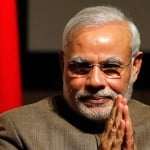
France has “committed” to helping three Indian cities evolve as smart cities – Puducherry, Chandigarh, and Nagpur. But what does this help entail? The French ambassador in India, Francois Richier, on Wednesday, cleared the air.
No memorandum of understanding has been signed with any of the three cities yet, the ambassador told Business Today on the sidelines of an Indo-French seminar on smart cities in Delhi. That’s because the French are waiting to see if the three cities make the final cut. In the first phase, the Indian government shortlisted 98 cities.
In the second stage, a list of 20 is expected to be announced around January next year. Puducherry, Chandigarh, and Nagpur are hoping they make it to the top 20. If it does, the cities may get financing help, technical assistance, as well as the collective expertise of French companies keen to do business.
France has historical links with Puducherry and Chandigarh. Around 6000 French citizens still live in Puducherry, a former colony. “It was an 18th century smart city,” Richier said, adding that improvements will make it more contemporary. Similarly, he believes that Chandigarh – its master plan came from Swiss-French architect Le Corbusier – was a smart city of the 1960s. “How do you make it relevant for the 21st century?” he asked.
If these two cities make the final cut, France could help in heritage preservation as well as in developing the tourism infrastructure in and around the cities. A third area, according to the ambassador, could be healthcare – some of these cities could do with smart emergency services, for instance. Smart mobility is a fourth area of partnership.
The French have thus far taken a bottoms-up approach. “We are meeting citizen groups. Overtime, we may have three technical experts settling down in India to help the cities,” Richier said.
Earlier, the French Development Agency had committed to provide 2 billion euros in loans (sovereign and non-sovereign) to support Indian smart cities. “This money will be available to the three cities. But the local bodies will have to come up with fundable projects,” Richier told Business Today.
Ever since India’s smart cities programme came into being, a lot of debate has focussed on the sort of projects that could qualify as fundable. Investors will expect returns – that might mean citizens paying a higher price for quality water and electricity supply. Will they agree? Some cities have rested the very idea of ‘smart cities’ as being elitist and an western import. But upgrades to existing infrastructure has become pertinent because of the quick pace of urbanisation.
While the French thinking on smart cities, as that of many other European cities, is around sustainability – things such as reducing carbon emissions and optimisation of natural resources – for many Indian cities smartness will begin at the ‘core’ infrastructure level: Making sure there is adequate water supply, 24/7 power, rainwater harvesting and proper sanitation.
[“source-businesstoday”]




